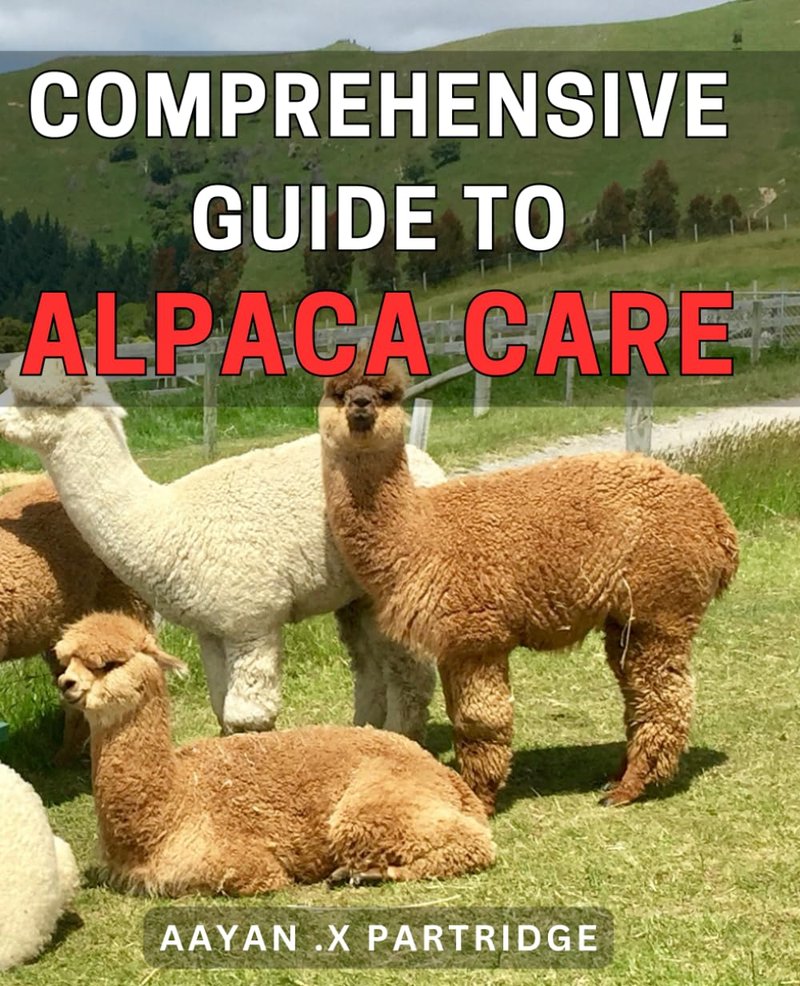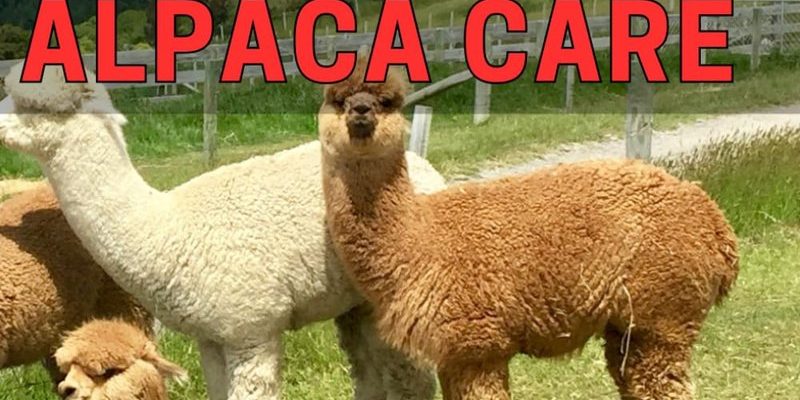
Let’s dive into the world of alpacas and explore how to best care for these fascinating animals. Whether you’re completely new to animal husbandry or just looking to add a fluffy friend to your life, this guide will walk you through everything you need to know, from their diet and health to their living arrangements. Here’s the thing: once you get the hang of it, taking care of these lovely creatures can be a breeze!
Understanding Alpaca Basics
Before we talk about how to care for your pet alpaca, it’s essential to understand their basic behavior and needs. Alpacas are social animals that thrive in herds. In the wild, they form close-knit groups, so having more than one is ideal. You might be wondering, “Can I just get one?” While it’s technically possible, your alpaca will likely be much happier with a buddy or two around.
Alpacas are also known for their gentle nature. They’re not aggressive animals, but they do communicate through body language and vocalizations. You’ll learn to recognize their different sounds – like humming when they’re content or making a “barking” sound when they’re alarmed. Understanding these cues is key to building a strong bond with your new pet.
A crucial aspect of understanding alpacas is knowing their needs. They require ample space to roam and graze, ideally in a safe, fenced area. You’ll also want to prepare for their grooming needs, which can be surprisingly minimal since they don’t require frequent baths but do need regular shearing.
Creating a Comfortable Living Environment
Setting up the perfect living environment for your alpaca is one of the most important steps in their care. Think of their space as a cozy retreat where they can graze, play, and relax. First, you’ll need a secure, spacious outdoor area. Alpacas require at least a quarter-acre of land per animal to thrive. An open pasture with plenty of grass is ideal, but it’s essential to have a solid fence to keep them safe from predators.
Next, consider shelter. Alpacas aren’t fond of rain or extreme weather, so providing a simple barn or shed will help keep them dry and comfortable. Make sure it has good ventilation and is free from drafty spots. You might need to add some bedding, like straw or hay, to keep the floor dry and to give them a comfortable place to rest.
Lastly, don’t forget about enrichment! Alpacas are intelligent creatures that enjoy mental stimulation. You can enhance their environment by adding toys, logs for climbing, or even a small pool of water during warmer months. Keeping them entertained helps prevent boredom and encourages their natural behaviors.
Feeding Your Alpaca: A Nutritional Guide
Feeding your alpaca properly is crucial to their overall health. Honestly, it’s not just about filling a trough and calling it a day! A balanced diet for alpacas mainly consists of high-quality hay, pasture grasses, and specially formulated pellets. These provide essential nutrients that support their health and well-being.
When you’re choosing hay, look for options like timothy, oat, or orchard grass. Avoid any moldy or dusty hay, as it can lead to respiratory issues. Also, make sure that they have constant access to fresh, clean water. Hydration is key for any animal, but especially for alpacas, who can be sensitive to dehydration.
You might be wondering how often to feed them. Alpacas usually eat two to four times a day, so check on their food levels regularly. It’s also important to monitor their weight. Alpacas can easily become overweight, which can lead to health issues. If you notice that your alpaca is gaining weight, consider consulting with a veterinarian or animal nutritionist.
Regular Health Check-Ups
Keeping your alpaca healthy means staying on top of regular veterinary check-ups. Just like any pet, they’ll need routine vaccinations and health screenings. It’s best to establish a good relationship with a vet who specializes in llamas or alpacas because they will understand the specific needs of these animals.
Common health issues in alpacas include parasites, dental problems, and nutritional deficiencies. Regularly checking their teeth is essential, as dental issues can significantly affect their eating habits. You might notice if they’re not chewing properly or if they seem reluctant to eat their usual meals.
Another important health aspect is hoof care. Alpacas have unique feet that require periodic trimming. Neglecting this care can lead to discomfort and mobility issues. Schedule a farrier visit every six to eight weeks to keep their hooves in tip-top shape.
Grooming and Shearing: Keeping Their Coat Healthy
One of the fascinating things about alpacas is their fleece. It’s soft, warm, and highly sought after, but it also requires some grooming. You might be surprised to learn that alpacas typically only need to be sheared once a year, usually in the spring. Shearing helps keep them cool during the warmer months, as long, thick fleece can lead to overheating.
During the year, it’s important to regularly brush your alpaca to remove debris and prevent matting. You can use a slicker brush or a comb specifically designed for animals with long hair. When brushing, be gentle and make it a bonding experience; they’ll likely enjoy the attention!
If you’re not comfortable shearing them yourself, consider hiring a professional. It’s a specialized skill, and a pro will ensure that the process is safe and stress-free for your alpaca. Remember, keeping their fleece healthy also means managing it well. After shearing, you can collect the fleece, which can be spun into yarn or used in crafts—an added bonus for alpaca owners!
Understanding Alpaca Behavior
Understanding alpaca behavior is crucial for building a strong bond with them. As previously mentioned, alpacas are social animals. Their natural instinct is to live in groups, so keeping them in pairs or small herds is ideal. You’ll likely see them interacting affectionately, playing, or simply hanging out together. This social interaction is vital for their mental health.
Alpacas communicate using various sounds, like humming when they are relaxed or chirping when they are startled. Pay attention to their body language, too! For example, if an alpaca stands tall with ears up, they’re curious or interested. However, if they’re crouching with ears back, they might be feeling threatened or uncomfortable.
Regular interaction with your alpaca will help acclimatize them to your presence and build trust. Spend time with them daily—offering treats can help encourage positive interactions. This will make it easier for them to bond with you and develop a friendly demeanor.
Common Challenges and Solutions
Like any pet, alpacas can present some challenges. One common issue is their tendency to be a bit skittish. If they aren’t properly socialized, they might become fearful or anxious. Here’s the thing: patience is key. Spend time around your alpaca so they can get used to your presence. Use calm, soothing tones when you approach, and avoid sudden movements.
Another common challenge is managing their diet. As mentioned earlier, alpacas can easily gain weight, so monitoring their food intake is essential. If you’re noticing they’re getting a little too plump, limit the number of treats and be aware of the caloric content in their hay and grains.
Lastly, unexpected health issues might arise. Always have a basic first aid kit ready for your alpaca and familiarize yourself with common signs of distress, like coughing, limping, or a change in appetite. Regular check-ups with your vet will help catch any issues early, ensuring they stay happy and healthy.
In conclusion, caring for a pet alpaca can be a rewarding journey filled with joy and companionship. By creating a nurturing environment, maintaining a balanced diet, ensuring regular veterinary care, and understanding their behavior, you can establish a strong bond with your fluffy friend. With patience and love, you’ll find that caring for your alpaca is not only manageable but also deeply fulfilling. What are you waiting for? Start welcoming these gentle creatures into your life!

